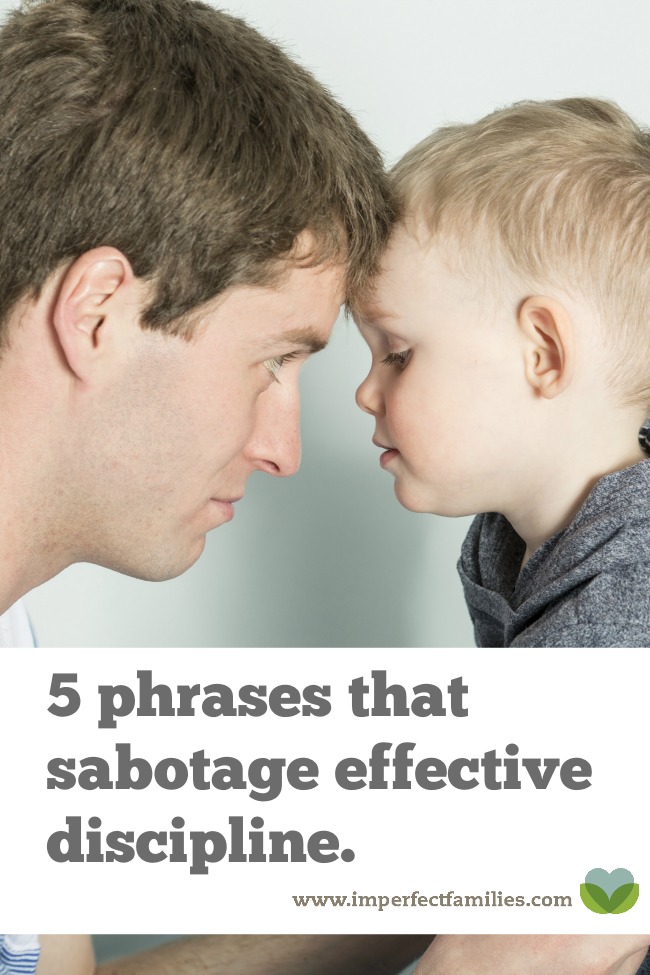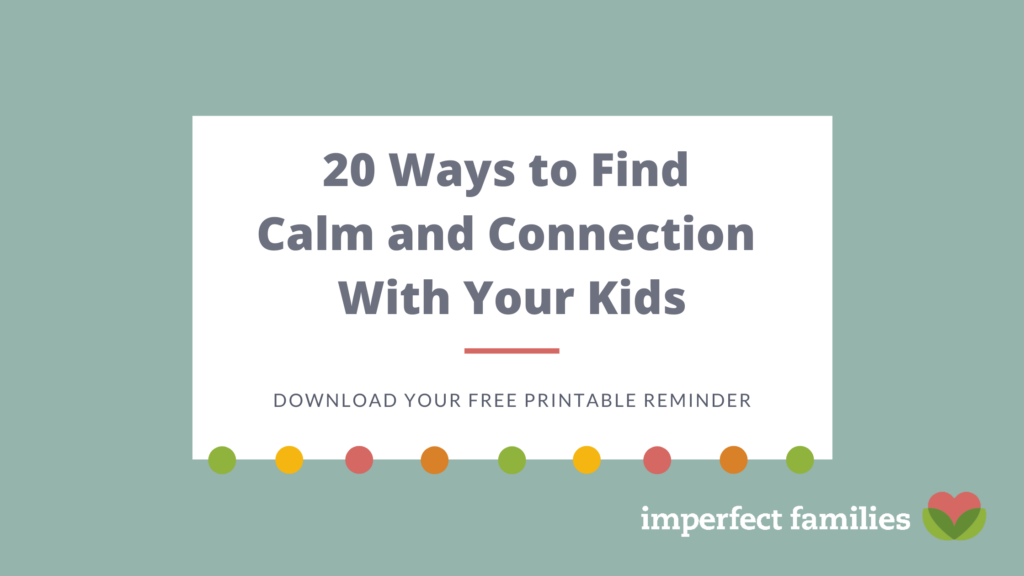
You’ve read the parenting books.
You’ve tried the latest discipline strategies.
And…unfortunately, you’re still dealing with the same old thing.
Before you give up completely, let’s take a look at a silent partner in your parenting:
Your thoughts.
Everyone carries around an unspoken understanding of why kids act the way they do. Some of these thoughts are helpful, they drive you to pick up your crying toddler and kiss imaginary boo-boos.
But some of these thoughts and beliefs keep you stuck in a parenting rut. They keep you from moving forward or trying a new parenting strategy.
Maybe it’s time to bring these beliefs into the light, dust them off, and see if they’re helpful…or if it’s time to reevaluate.
5 Beliefs that sabotage effective discipline
Take an honest look through this list and see if any of these phrases may be impacting how you see your child or how you think about discipline.
He’s too old for…”
Tantrums. Blankies. Missing his mom while she’s at work. Whatever it is, sometimes we assume that our child is too old for things we deem “childish.”
The fact is, your child is…childish! They are still finding their way in the world. Some days, they will be able to handle a big feeling like worry or frustration, and other days they may not be able to regulate enough to get through without a meltdown or a comfort item.
Instead of panicking, acknowledge that your child is having a “childish” day, a period of time where they may not act as “mature” as they usually do. Give them space to rest in the comfort of something familiar or step in to provide boundaries with kindness as they struggle to manage big emotions.
She’ll never learn!”
Kids don’t develop according to a guideline in a book. They are individuals. They grow, change and mature at their own rate. Comparing your child to another child of a similar age may give you an idea of what to expect, but putting these expectations on your child is a recipe for disaster.
Instead, refresh your memory regarding what is actually expected at each age (this is a great post). Then, tune into your own child. Become familiar with how they learn, their temperament, their needs, and challenges.
Step back and take a brave look at your expectations and your teaching strategies. You may find that there is another way to teach your child that fits better with his personality. Or, you may discover that your child is not actually at a place developmentally where they can manage this situation without help.
I can’t let her get away with that!”
There’s a common belief that kids need to be punished – usually immediately – in order to learn that a behavior is wrong. Plus, any parenting strategy that suggests waiting or delaying a consequence (or not giving a consequence!) is accused of sending the message that the behavior is ok.
However, when we look at the brain, we realize that in the heat of the moment, the emotional part of the brain is completely running the show. In order for the child to learn from the situation, we need to engage the logical, rational part of the brain first. Which means…you need to wait.
Thankfully, there are lots of other ways to talk about appropriate and inappropriate behavior with our kids. Sometimes, you may even find that their behavior was fueled by something totally unrelated, such as being overstimulated, hungry, tired, or being put in a situation that they were not developmentally prepared to handle.
He’s just trying to get attention.”
This is similar to “just ignore him, and he’ll stop.” Parents often think that ignoring negative behavior will make it go away. Unfortunately, they usually find that the behavior escalates into a full-blown tantrum or power struggle.
Sometimes, ignoring seems to work. The child stops begging, crying, or asking for your attention. But, if you were to look closer, you would find that your child may have just given up! They may have reached the sad conclusion that even their parents do not have the time or ability to help with these big feelings. Some children turn to their peers for attention instead of their parents.
If your child knew a better way to get their needs met, they would do it. In this instance, they needed to connect with their caregiver, the person who could help them manage their big feelings or create a plan to make it through a tricky situation. Giving a child attention is actually meeting your child’s deepest needs in this moment.
Plus, it keeps your relationship strong by sending the message that you are reliable, confident, and capable.
She’s trying to push my buttons.”
This one can feel very true. A lot of the time. Kids have a unique ability to identify the exact triggers that will elicit a response from us. It’s hard not to take it personally.
Keep in mind, though, kids are wired for connection to their caregivers. They are born with the need to be attached – it is a survival instinct! Even as kids grow, the connection to you is important. Severing this connection is uncomfortable, scary, and uncertain. Disconnection not the goal.
Instead of pushing your child away when they push your buttons, be curious. What is driving this behavior? What is my child saying – without actually saying it? How can you fill your child’s need in this moment (even though they are asking in a very round-about way)? How can you strengthen the connection so your child doesn’t need to engage you in this way?
Finding a positive alternative
If you’ve identified a parenting belief that’s keeping you stuck, Great!
That’s the first step.
Now, it’s up to you to create a new, helpful (and true!) phrase to replace the old one.
So, if you used to tell yourself, “I can’t let her get away with that!” You may decide to rephrase it to say, “Calm brains make better choices. Let her calm down first.”
It may not come naturally at first, and that’s ok.
Give yourself permission to be imperfect. Simply notice the thought, restate your new thought, and move forward.
With time, it will become more automatic.
Then, you can address those pesky discipline challenges with a new…and helpful!…perspective.
Want more help?
Online parent coaching is a personalized service created for busy parents who are looking for clarity, accountability, and support as they put new parenting strategies in place. Click here to see if Parent Coaching is a good fit for you!



Comments have been turned off to retain the privacy of all families. If you have a question or comment on the topic, you're always welcome to contact me.